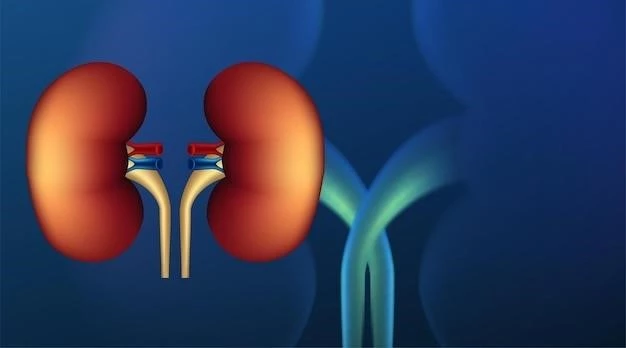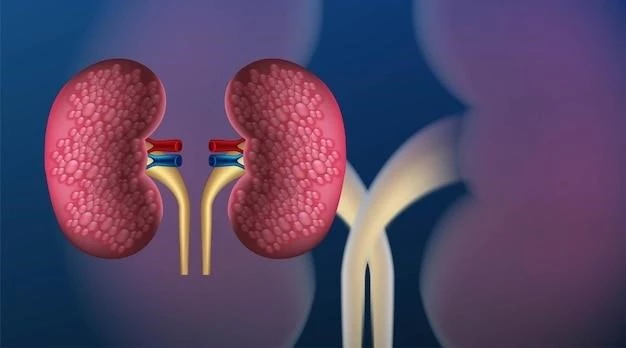Understanding Ischiadic Hypoplasia, Renal Dysfunction, and Immunodeficiency

I. Introduction
Welcome to this comprehensive guide on understanding the complex conditions of Ischiadic Hypoplasia, Renal Dysfunction, and Immunodeficiency. These conditions can have varying impacts on individuals, affecting different parts of the body and requiring specialized care. Ischiadic Hypoplasia is a rare congenital condition that affects the development of the sciatic nerve. Renal Dysfunction refers to impaired kidney function, which can lead to serious health complications if not managed effectively. Immunodeficiency relates to a weakened immune system, making individuals more susceptible to infections and illnesses. Understanding these conditions is critical for early detection, proper diagnosis, and effective management strategies. Throughout this article, we will explore the causes, symptoms, diagnosis, treatment options, long-term prognosis, and ongoing research developments related to Ischiadic Hypoplasia, Renal Dysfunction, and Immunodeficiency. By gaining a deeper insight into these conditions, individuals, caregivers, and healthcare professionals can work together to optimize care, improve quality of life, and enhance overall well-being. Let’s delve into the intricate world of these interconnected health challenges and discover how each aspect plays a vital role in shaping the overall health of affected individuals.
II. Ischiadic Hypoplasia⁚ Causes and Symptoms
Ischiadic Hypoplasia is a rare congenital condition characterized by underdevelopment of the sciatic nerve, which can result in various symptoms and challenges for affected individuals. The exact causes of Ischiadic Hypoplasia are not fully understood, but it is believed to be linked to genetic factors and abnormalities in fetal development. Symptoms of Ischiadic Hypoplasia can vary widely and may include weakness, numbness, or pain in the affected leg, foot deformities, abnormal gait, and muscle atrophy. Early detection and diagnosis are crucial in managing Ischiadic Hypoplasia effectively. If you or a loved one experience any of these symptoms, it is essential to consult a healthcare professional for a thorough evaluation and appropriate management plan. By understanding the causes and recognizing the symptoms of Ischiadic Hypoplasia, individuals and caregivers can take proactive steps to address the condition and improve quality of life. Stay informed, seek medical guidance, and explore treatment options to manage Ischiadic Hypoplasia with the support of healthcare professionals.
III. Renal Dysfunction⁚ Impact on the Body
Renal Dysfunction, or impaired kidney function, can have a profound impact on the body’s overall health and well-being. The kidneys play a crucial role in filtering waste products from the blood, regulating blood pressure, and maintaining electrolyte balance. When the kidneys are not functioning optimally, toxins can build up in the body, leading to a range of symptoms such as fatigue, swelling, changes in urination patterns, and difficulty concentrating. Renal Dysfunction can also contribute to the development of other serious conditions, including cardiovascular disease and anemia. If you suspect you may be experiencing symptoms of Renal Dysfunction, it is important to seek medical attention promptly. Early detection through blood tests, urine tests, and imaging studies can help healthcare professionals assess kidney function and determine the most appropriate treatment plan. Managing Renal Dysfunction often involves lifestyle modifications, medication, and in some cases, dialysis or kidney transplantation. By understanding the impact of Renal Dysfunction on the body and taking proactive steps to address kidney health, individuals can better manage the condition and improve their overall quality of life. Be proactive about your kidney health, prioritize regular check-ups, and collaborate with healthcare providers to optimize your renal function and well-being.
IV. Immunodeficiency⁚ Compromised Immune System
Immunodeficiency refers to a compromised immune system that may be caused by genetic disorders, certain medications, or underlying health conditions. A weakened immune system can make individuals more vulnerable to infections, illnesses, and other health complications. Common symptoms of immunodeficiency include frequent infections, slow wound healing, and persistent fatigue. It is important for individuals with compromised immune systems to take proactive steps to protect their health, such as practicing good hygiene, staying up-to-date on vaccinations, and avoiding contact with sick individuals. Seeking medical advice and timely intervention are essential in managing immunodeficiency effectively. Healthcare providers may recommend immunoglobulin therapy, medications to boost immune function, or other specialized treatments based on individual needs. By understanding the challenges associated with immunodeficiency and working closely with healthcare professionals, individuals can develop personalized strategies to support their immune health and overall well-being. Stay informed, prioritize prevention, and empower yourself to take control of your immune system to lead a healthier life.
V. Diagnosis and Medical Evaluation
Diagnosing Ischiadic Hypoplasia, Renal Dysfunction, and Immunodeficiency requires a comprehensive medical evaluation to identify the underlying causes and determine the most appropriate treatment approach. For Ischiadic Hypoplasia, diagnostic tests such as MRI scans, electromyography, and nerve conduction studies may be used to assess nerve function and identify abnormalities. Renal Dysfunction is typically diagnosed through blood tests, urine tests, imaging studies, and kidney biopsies to evaluate kidney function and detect any abnormalities. Immunodeficiency may be diagnosed through blood tests to assess immune cells and function, as well as genetic testing to identify underlying immune system disorders. If you suspect you may have symptoms related to these conditions, it is essential to consult a healthcare professional for a comprehensive evaluation. Be proactive about sharing your medical history, symptoms, and concerns to facilitate an accurate diagnosis and appropriate treatment plan. Collaborate with healthcare providers to undergo the necessary tests and assessments to understand the specific nature of your condition and develop a personalized approach to managing Ischiadic Hypoplasia, Renal Dysfunction, or Immunodeficiency. Stay informed, advocate for your health needs, and work together with medical professionals to address these complex health challenges effectively.
VI. Treatment Options and Management
Treatment for Ischiadic Hypoplasia, Renal Dysfunction, and Immunodeficiency aims to optimize individual health outcomes, manage symptoms, and improve quality of life. Ischiadic Hypoplasia management may involve physical therapy, orthopedic interventions, and assistive devices to support mobility and function. Renal Dysfunction treatment focuses on controlling blood pressure, managing electrolyte imbalances, and potentially requiring dialysis or kidney transplantation in severe cases. Immunodeficiency management includes preventive measures like vaccinations, immunoglobulin replacement therapy, and medications to boost immune function. Collaborating with a multidisciplinary healthcare team is crucial in developing a comprehensive treatment plan tailored to individual needs. Stay engaged with healthcare providers, follow recommended treatment protocols, and prioritize self-care to manage these conditions effectively. By actively participating in your care, staying informed about treatment options, and seeking ongoing support, you can enhance your overall well-being and quality of life. Remember, effective treatment and management strategies play a pivotal role in controlling symptoms, slowing disease progression, and promoting long-term health outcomes for individuals with Ischiadic Hypoplasia, Renal Dysfunction, or Immunodeficiency.
VII. Long-Term Prognosis and Care
Understanding the long-term prognosis and care needs for Ischiadic Hypoplasia, Renal Dysfunction, and Immunodeficiency is essential for individuals living with these conditions. The long-term outlook can vary depending on the severity of symptoms, early intervention, and the effectiveness of treatment. For Ischiadic Hypoplasia, ongoing physical therapy, assistive devices, and regular medical monitoring can help manage symptoms and improve quality of life. Renal Dysfunction may require lifelong management strategies, including medication adherence, dietary modifications, and close monitoring of kidney function to prevent complications. Individuals with Immunodeficiency may need to prioritize infection prevention, receive regular immunoglobulin therapy, and consult with immunology specialists for specialized care. Long-term care for these conditions often involves regular follow-up appointments, health screenings, and adjustments to treatment plans as needed. By staying proactive, adhering to treatment recommendations, and fostering open communication with healthcare providers, individuals can navigate the challenges of Ischiadic Hypoplasia, Renal Dysfunction, and Immunodeficiency with resilience and dedication. Remember, long-term care plays a crucial role in maintaining health, managing symptoms, and promoting overall well-being for individuals facing these complex health conditions.
VIII. Research and Future Developments
Ongoing research and future developments in Ischiadic Hypoplasia, Renal Dysfunction, and Immunodeficiency are crucial for advancing treatment options, improving diagnostic techniques, and enhancing overall care for individuals affected by these conditions. Scientists and healthcare professionals are continually exploring new avenues to better understand the underlying mechanisms of these diseases, identify novel therapies, and enhance long-term outcomes. Research efforts may focus on genetic factors contributing to Ischiadic Hypoplasia, innovative treatments for Renal Dysfunction such as regenerative medicine approaches, and advancements in Immunodeficiency management through gene therapy or immune-modulating drugs. Engaging with clinical trials, staying informed about cutting-edge research, and supporting advocacy efforts can contribute to the progress and innovation in addressing these complex health challenges. By participating in research opportunities, individuals can play a valuable role in shaping the future of healthcare and potentially benefit from emerging treatments. Stay connected with healthcare providers, research organizations, and patient advocacy groups to stay informed about the latest developments in Ischiadic Hypoplasia, Renal Dysfunction, and Immunodeficiency and be part of the journey towards improved care and better outcomes.
IX. Conclusion
In conclusion, navigating the complexities of Ischiadic Hypoplasia, Renal Dysfunction, and Immunodeficiency requires a multifaceted approach that prioritizes early detection, personalized treatment plans, and proactive long-term care. By understanding the causes, symptoms, diagnosis, and treatment options for these conditions, individuals can empower themselves to take control of their health and well-being. Collaboration with healthcare providers, adherence to treatment protocols, and staying informed about research developments are key components in managing these health challenges effectively. Remember, each person’s journey with Ischiadic Hypoplasia, Renal Dysfunction, or Immunodeficiency is unique, and personalized care is essential in optimizing outcomes and enhancing quality of life. By advocating for yourself, seeking support from healthcare professionals, and staying resilient in the face of challenges, you can navigate these conditions with strength and determination. Stay informed, stay connected, and prioritize your health to embark on a journey towards better health and well-being despite the complexities of Ischiadic Hypoplasia, Renal Dysfunction, and Immunodeficiency.
